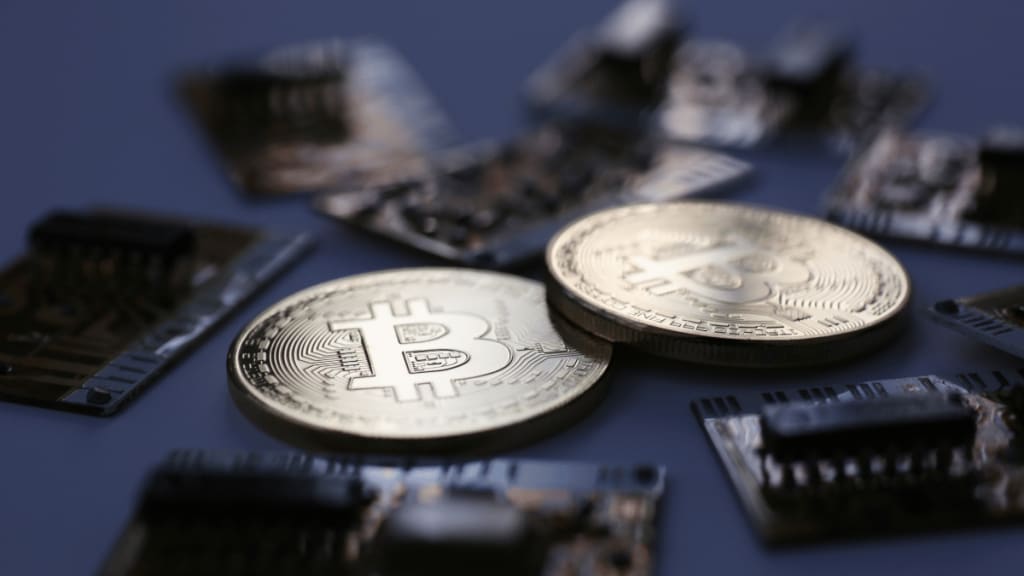Token Development Guide: A Comprehensive Approach to Creating Your Own Tokens
A Comprehensive Approach to Creating Your Own Tokens

Welcome to the ultimate Token Development Guide, where we will take you on a journey to understand the intricacies of token creation and blockchain technology. Tokens have revolutionized the way we transact and interact with digital assets, and understanding their development process is essential for entrepreneurs, developers, and enthusiasts alike. This guide covers everything from the basics of tokens to the latest advancements, accompanied by real-world examples and credible sources.
What is a Token?
In the realm of blockchain and cryptocurrency, a token is a digital asset representing value or utility on a decentralized network. These tokens are often built on existing blockchain platforms such as Ethereum, Binance Smart Chain, or Solana, using smart contracts. Tokens can serve various purposes, including facilitating transactions, granting access, rewarding users, and even representing physical assets.
Tokens can be broadly classified into three types:
Utility Tokens
Utility tokens are designed to provide access to a specific product or service within a blockchain ecosystem. Users can use these tokens for transactions, access features, or gain exclusive benefits.
Security Tokens
Security tokens represent ownership in a real-world asset, similar to traditional securities like stocks or bonds. These tokens are subject to securities regulations and offer investors ownership rights and potential dividends.
Governance Tokens
Governance tokens empower token holders to participate in the decision-making process of a decentralized organization. Holders can vote on proposals and influence the project's future direction.
Understanding the Token Development Process
Creating a token involves several crucial steps, each contributing to its functionality and success. Let's delve into the comprehensive process of token development:
Market Research and Idea Generation
Before diving into development, conduct thorough market research to identify the problem your token aims to solve. Brainstorm ideas and assess the viability and demand of your token concept.
Choosing the Right Blockchain Platform
Selecting the appropriate blockchain platform is vital as it determines the token's features and scalability. Consider factors like transaction fees, speed, security, and community support.
Defining Token Specifications
Outline the token's key features, such as supply, name, symbol, decimals, and token type. Define the purpose and utility of the token, aligning it with your project goals.
Smart Contract Development
Create a smart contract that governs the token's functionality, including issuance, transfers, and security measures. Ensure rigorous testing to identify and resolve potential vulnerabilities.
Token Deployment and Testing
Deploy the smart contract on the chosen blockchain and conduct extensive testing to validate its functionality and security. Invite external auditors for a comprehensive review.
Token Distribution and ICO/IEO
Decide on the token distribution mechanism, whether through a private sale, public sale (ICO/IEO), or airdrop. Comply with legal regulations and provide transparency to investors.
Listing on Exchanges
After the initial offering, work on getting your token listed on reputable exchanges to enhance liquidity and accessibility. Engage with potential investors and build a strong community.
Continuous Development and Upgrades
Stay committed to the ongoing development of your token, addressing community feedback and incorporating necessary upgrades. Regularly audit the smart contract for security.
Token Development Best Practices:
Security First
Token development requires stringent security measures to protect user funds and data. Follow industry best practices, conduct security audits, and implement multi-layer security protocols.
Transparent Governance
If your token involves a decentralized organization, emphasize transparency in governance. Engage the community in decision-making and ensure equal voting rights.
Comply with Regulations
Understand and comply with legal and regulatory requirements in the regions where your token operates. This fosters trust among users and investors.
Engaging Community
Nurture an active and engaged community around your token. Regularly communicate updates, answer queries, and reward active participants.
Scalability and Interoperability
Design your token and smart contract to be scalable and interoperable with other blockchain platforms. This future-proofs your project against technological advancements.
Real-World Examples of Successful Tokens:
Ethereum (ETH)
As the pioneer of smart contract functionality, Ethereum revolutionized the world of tokens. Its native token, ETH, serves as both a utility token for transactions and a store of value.
Binance Coin (BNB)
Binance Coin, issued on the Binance Smart Chain, is a prime example of a successful utility token. It powers transactions, reduces fees, and enables participation in Binance's decentralized ecosystem.
Uniswap (UNI)
Uniswap's governance token, UNI, empowers its community to vote on proposals and upgrades, fostering a decentralized and autonomous exchange platform.
Token Development Guide FAQs:
How much does it cost to create a token?
Creating a token's cost varies depending on factors such as blockchain platform, token type, development complexity, and legal considerations. It can range from a few thousand dollars to millions for comprehensive projects.
What programming languages are used for token development?
Most token development is carried out using Solidity for Ethereum-based tokens, while other blockchain platforms may utilize languages like Rust, C++, or Golang.
Can I create a token without technical knowledge?
While technical knowledge can be advantageous, you can collaborate with blockchain developers or use token creation platforms with user-friendly interfaces.
Are there legal implications for token issuers?
Yes, token issuers must navigate legal frameworks and regulations, such as securities laws, anti-money laundering (AML), and Know Your Customer (KYC) regulations.
How long does it take to create a token?
The timeline for token development varies based on complexity and resources available, but it can take anywhere from a few weeks to several months.
How can I ensure the security of my token?
Thoroughly audit the smart contract, engage external security firms for review, and encourage the community to identify potential vulnerabilities.
Conclusion
From the basics to best practices and real-world examples. Whether you're an entrepreneur venturing into the world of tokens or an enthusiast exploring the possibilities, this guide equips you with the knowledge to navigate the exciting realm of token development. Embrace the transformative power of blockchain technology, and may your token journey be prosperous and successful.
About the Creator
Crytpo Exchange Script
I'm excited to share my knowledge and experience with the world. My goal is to help people understand the basics of cryptocurrency and how to use it to their advantage.






Comments
There are no comments for this story
Be the first to respond and start the conversation.